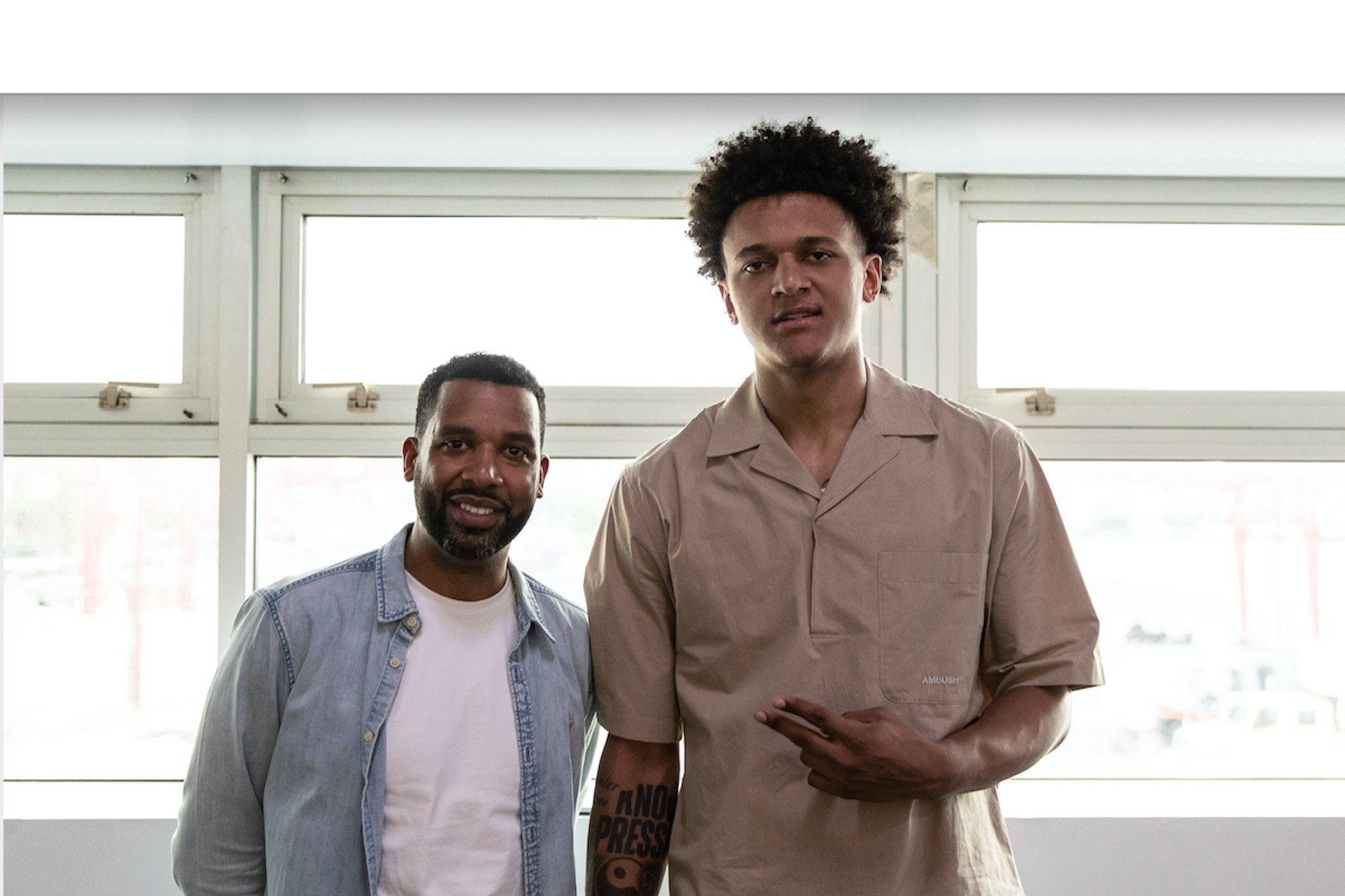How This Marketing Guru Enlisted Magic Johnson, Kevin Durant, Paolo Banchero and Some of the Biggest Names in Sports Hayes Grooms IV, Head of Athlete Marketing at Dapper Labs, on how to get the world's biggest stars to partner with your business.
By Dan Bova
Our biggest sale — Get unlimited access to Entrepreneur.com at an unbeatable price. Use code SAVE50 at checkout.*
Claim Offer*Offer only available to new subscribers

As Head of Athlete Marketing at Dapper Labs, Hayes Grooms IV has formed partnerships with the world's biggest athletes — Magic Johnson, Kevin Durant, Patrick Mahomes — to create their first NFTs. Entrepreneur connected with the former University Of Michigan basketball player to discuss the Xs and Os of working with iconic talent to blow up your brand. Here are his top seven takeaways.
It's not just about money.
When I'm in the room with these icons for Dapper Labs, I immediately make it clear that I'm here to tell their story, preserve their legacy, and amplify their purpose and impact. I'm here to specifically map out their best path into digital collectibles which often features the most noteworthy moments of their career. An essential part of this is contextualizing what we know their goals and needs are across their existing activities, and how NFTs will be an organic and additive extension to what they're already doing.
Related: What Shockingly Successful Sports Teams Can Remind Us About Leadership
Education is essential.
One of the biggest questions we get from talent is "how will this partnership give me deeper insights into my audience and provide unique opportunities for my fans? " They want to keep learning and create feedback loops that improve their brand in all areas. The best talent reps are also supremely focused on finding new ways to directly engage with their client's audiences. With blockchain technology, athletes can now see which fans are most financially invested in them on NBA Top Shot or can determine who owns all of their Moments on NFL All Day. Essentially, educating athletes is one of my primary responsibilities because empowerment is everything. Building a community and a greater relationship with their fans will last long after the game.
Building a brand means building a community.
For entrepreneurs looking at how to approach their product and marketing, perhaps the most important thing we're seeing is that your customers should be bigger fans once they've purchased and used it. This should flow through to how you storytell, how they receive the product and how you keep in touch with the customer once they're in your ecosystem. Since Dapper's offerings inherently spotlight key players and teams who are creating the most memorable highlights, a part of the magic is that our digital collectibles turn the audiences into bigger fans - whether it's NBA Top Shot, WNBA Top Shot, NFL All Day or UFC Strike. We did a survey on Discord and found that most collectors said they've learned more about the WNBA and were bigger fans since the WNBA digital collectibles launched.
Our Dapper Sports NFTs are built around players' historic or memorable moments, and what you really find is that people have a stronger ability to retain a series of individual moments than just the aggregate. For entrepreneurs, positioning products and services as a specific moment in time where the product was created or can be experienced, is incredibly differentiating.
Use recent wins to explain success roadmap.
The GOAT Shawn Carter once said, "Everybody can tell you how to do it, they never did it." Before you tell people how you'll do it, tell them how it's worked before for you, and then how you'll apply that to their situation. There is a huge multiplier on using proven tactics as a foundation for proposed plans, whereas it's very easy for the person being pitched to debunk any idea in their head.
Part of the psychology of pitching someone, is that even if you understand their needs, they won't believe it if they can't relate or understand your business. Start out by getting them rooting for what you've done, and then dazzle them by bringing it back to how it connects to a well-researched perspective on how they're unique.
L stands for lessons, not losses.
I grew up in Detroit and spent three years playing basketball at Lamar University in Texas. Being a collegiate athlete is extremely challenging. When I got injured my junior year and missed the season, my basketball career seemed over. I changed my major three times in three years, so I had no idea what I would do after basketball. It was an extremely hard time in my life and I thought I was losing. L's aren't always losses, but lessons. I realized I'm only going to lose if I quit. I couldn't afford to wait for things to get easier and better, so I had to elevate my game and decide who I was going to be when things got tough.
I relentlessly pursued an internship at IMG who, at the time, were the best talent representatives in the world, but I had zero experience. With even more relentlessness as a rising senior, I only applied to one school, the University of Michigan, which has one of the best sports management programs in the country. Michigan rarely accepted third-year transfers, so everyone was expecting me to take another L. But this was a championship I wasn't going to lose. Next thing they knew, I was in NYC working for IMG before being formally accepted to Michigan. Identify what your championship looks like and relentlessly pursue it.
A star contributor doesn't always have to be a star.
My close friend Braylon Edwards, who was the best college football player in the country at the time, had a front-row seat to my transformation and was a huge advocate for me to transfer and to play again. It wasn't until Assistant Coach Charles Ramsey asked me at the CCRB the summer before classes, "Man, what the hell happened to you? Can you still play?" It turned out I had a little more to contribute on the basketball court, so Tommy Amaker offered me an opportunity of a lifetime to wear the Maize and Blue. I sat out a year which was great to allow me to acclimate to my studies, because again, I was pursuing something greater than hoop dreams, but damn it felt good to hear the Maize Rage chant "Hayes… Hayes, Hayes, Hayes" even when I played two minutes, starting, or not playing at all. It was literally all a dream come true considering where I started.
Related: How This First-Time Author Turned His Coaching Experience Into a No. 1 Bestseller for Kids
Rethink your shot clock.
If you love an industry, don't approach a role or business like this is your one chance. View it as a lifelong pursuit where there are going to be ups and downs. The minute you stop worrying about when the clock will run out, your game will improve. Failure is inevitable. It's essential for you to be able to expand and grow which will allow you to find ways to keep advancing. My path in entrepreneurship and sports shows you can be a player, a manager/agent, a coach, a business owner, or even an executive working in Web 3 with some of the best talent and athletes in the world. Capture the vision, absorb every gift, respect the game and conquer your pursuit to do the one thing that matters. And that is to win.












